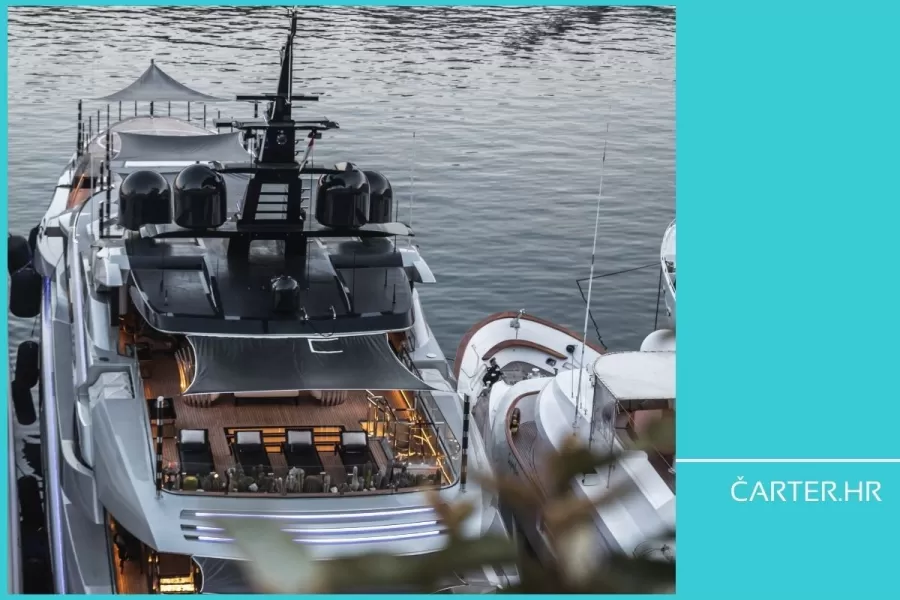
- 18.04.2023.
- News, Regulations
Every yacht charter is obligated to protect its crew or guests. But what if the vessel needs to be protected from the carelessness and negligence of another? Find out what legal obligations every charter company has and what insurances are available for such situations.
Yacht charter companies are responsible for protecting the vessel and the safety of persons on and off the vessel.
In this article, we look at the legal obligations of charter companies to protect their vessels against crew and hirer negligence and how charter companies can protect themselves from the consequences.
Application of the law
The following laws apply to the protection of the vessel against crew and guest negligence:
The Maritime Code of the Republic of Croatia - this code regulates the rules of conduct at sea. It prescribes the obligation of the crew to ensure the safety of the vessel and passengers and not to perform any actions that could lead to damage to the vessel.
Maritime Property and Seaports Act of the Republic of Croatia - prescribes the vessel owner's obligation to protect maritime property and the environment and not to perform any actions that could lead to pollution or damage of maritime property.
Act on Compulsory Insurance in Transport - this Act regulates compulsory insurance in transport.
The Law on Obligations - as a general law prescribing the duties and responsibilities of the parties in contractual relations. Among other things, it regulates the issue of liability in the event of damage to the vessel.
Types of insurances for yacht charter companies
A yacht charter company should take out several insurances to cover itself against the negligence of the crew and guests; one of the basic ones is hull insurance.
Here are some other essential insurances you should have:
Mandatory liability insurance - covers damages arising from liability for damages due to bodily injury, health impairment or death of a third person.
Voluntary insurance - mandatory boat insurance only covers damage caused to swimmers, divers or people on the beach. And for damage caused by the vessel's owner to another boat, the vessel owner must pay out of pocket unless he also takes out voluntary liability insurance.
Accident insurance - this insurance covers injuries or death of crew members or guests who are on board.
Property insurance - this insurance covers damage to the boat and equipment in case of fire, storm or other unforeseen events.
Loss of income insurance - this insurance covers loss of income if the charter company cannot carry out its normal activities due to damage to the boat or equipment.
It’s important to note that each charter company is different and should consult with an insurance professional to determine what insurance they need.
When it comes to crew negligence, yacht charter companies must ensure that all crew members are trained in safety rules and procedures in the event of an accident. In addition, charter companies must verify the experience and qualifications of all crew members before hiring them.
In the event of a lawsuit or other legal ramifications, charter companies should have adequate insurance policies and legal support. It's also vital that charter companies carefully document all incidents and accidents to ensure that there is a complete record of all events.
In order to avoid the high costs of legal proceedings (as the amounts of damages are high considering the value of the vessel), it is necessary to carry out the entire procedure of insuring against undesirable consequences and to comply with the law.
How to protect yourself from the consequences of negligence
Even though yacht charter companies can take all necessary measures to ensure the safety of their vessels and passengers, there is still a possibility of mishaps or accidents.
To avoid adverse consequences, charter companies should take the following steps:
- Hire an experienced crew: ensure the crew has sufficient experience and knowledge to operate the vessels.
- Proper vessel maintenance: vessels should be maintained regularly to reduce the risk of accidents or breakdowns during the charter.
- A clear vessel charter contract: the contract should include minimum requirements for the age of the user, mandatory training, and vessel use conditions. In addition, the contract should include details about the user's liability in the event of damage.
- User training: train users in the vessel's safe operation and warn them of any potential hazards. This will help reduce the risk of accidents.
- Purchase additional liability insurance: in addition to regular boat insurance, charter companies can purchase additional liability insurance to protect against any adverse consequences that may occur during the charter.
- Timely response to problems: if damage occurs during a charter, charter companies must respond quickly to resolve the issue. This may include repairs to the vessel or resolving customer issues to prevent further damage.
By following these steps, charter companies can reduce the risk of accidents and adverse consequences, avoid high costs and the risk of legal proceedings, and protect their business.
Categories of trends
- News
- Sale
- Marketing
- SEO
- Web design
- Social media
- Technology
- Regulations
- Management
- Education
- Finances
- User experience
Newsletter
Sign up for the newsletter and receive the latest trends and tips straight to your inbox







